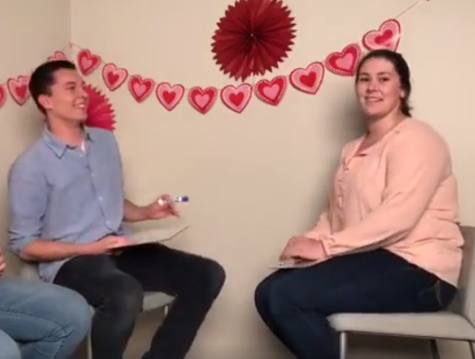Attachment styles may make or break relationships
February 4, 2011
Throughout history, no one has ever truly figured out why some relationships last while others end. However, research suggests that a person’s attachment style may heavily affect the successfulness of his or her relationships.
The adult attachment theory is a concept that describes how people behave in romantic relationships, said Carolyn Cutrona, ISU professor and department chair of psychology. She said there are three different attachment styles: secure, anxious and avoidant.
“Happily, about two-thirds [of the population] appears to be secure,” Cutrona said. “The final third is kind of divided up between avoidant and anxious.”
When a person has a secure attachment style, he or she is comfortable with being close to others. Cutrona said these people often experience very little jealousy and have few insecurities.
“[People with a secure attachment style] trust easily, and they believe in true love,” Cutrona said. “That kind of person usually has the most success in romantic relationships.”
As stated above, not everyone has the luxury of having a secure attachment style. For example, a few people have an anxious attachment style.
“[People with an anxious attachment style] really crave love, but they never quite believe that the person loves them enough,” Cutrona said. “They’re often very insecure, and very demanding.”
Cutrona said people with an anxious attachment style are usually very uncomfortable with trusting their partners.
“They’re always grabbing at you for more, more, more, and [saying] show me you love me, prove that you love me, prove that you’re not cheating on me,” Cutrona said. “That’s just a tough, tough partner to have.”
Cutrona said people with an anxious attachment style often have an unstable family background.
“With anxious attachment style, what research suggests is that their parents were inconsistent,” Cutrona said. “So, sometimes [the parents] were very loving and responsive and caring, and sometimes they were rejecting or ignoring.”
Similar to an anxious attachment style, an avoidant attachment style often stems from having a less-than-perfect childhood, Cutrona said.
“What the theory says is that [an avoidant attachment style] comes from parents who were rejecting,” Cutrona said. “This person as a child learned that you can’t turn to other people for comfort or for security because they never experienced that as children.”
People with an avoidant attachment style find it very hard to open-up and trust another person, Cutrona said. She said people with an avoidant attachment style often cannot offer their partners enough support.
“There’s research that avoidant people, when their partner is distressed, they back off more,” Cutrona said. “Think how frustrating that is: You turn to your partner when you need them most, and that sort of scares them to death and they back off more.”
However, those who have an anxious or avoidant attachment style can become more secure by being in a relationship with a person who has a secure attachment style, Cutrona said.
“The good news, if you are lucky enough as either an avoidant or an anxious person to partner with a secure person, who is very trustworthy, who is very consistent, you can change and become more secure as a result of that relationship,” Cutrona said.
Conversely, being a secure person who is in a relationship with, for instance, an anxious person can be very difficult.
“Issues can come up over privacy: you know, ‘I don’t want you in every aspect of my life. Sometimes, I just want to be with my friends.'” Cutrona said. “And that can be very hurtful and threatening for the anxious person.”
Likewise, a secure person may find it difficult to be in a relationship with an avoidant person.
“An issue that may arise is that the secure person is going to say to the avoidant person, ‘You never tell me your feelings, you never tell me what’s on your mind, I don’t feel like I really know you,'” Cutrona said. “So, a lack of intimacy, a lack of emotional closeness.”
If a person realizes that he or she has either an anxious or avoidant attachment style, and it is causing problems in his or her relationship, there are things he or she should do.
“If [your attachment style] is really causing problems in your relationship, I would head right over to the student counseling service, and say, ‘You know what, relationship after relationship I’m having a really hard time and I think I’m driving people away,'” Cutrona said. “That would be one really good step.”
Cutrona also recommends for people to just be aware of what attachment style they possess and to try correcting some of their negative behaviors.
“Just being aware of it, and pushing yourself to just not ask him where he was, or just maybe not challenge him,” Cutrona said. “Almost practicing the more relationship-healthy behaviors.”
Although relationships end for a variety of reasons, many psychologists, like Cutrona, believe that attachments styles do affect a person’s romantic relationships.
“I think the [psychology] field is convinced that [the adult attachment theory] is pretty important,” Cutrona said. “On a scale of one to ten, I give it an eight.”









